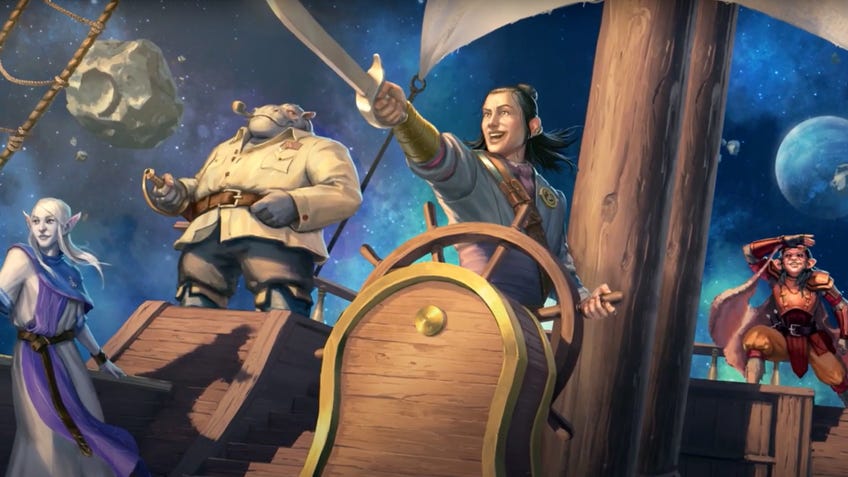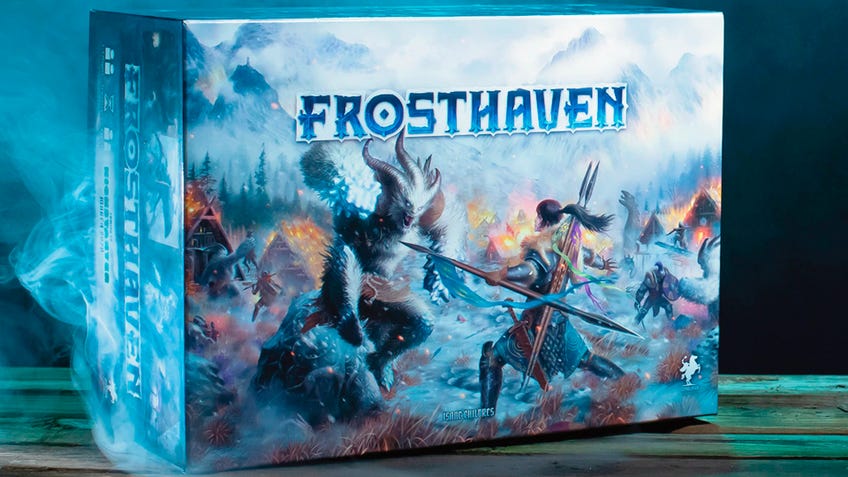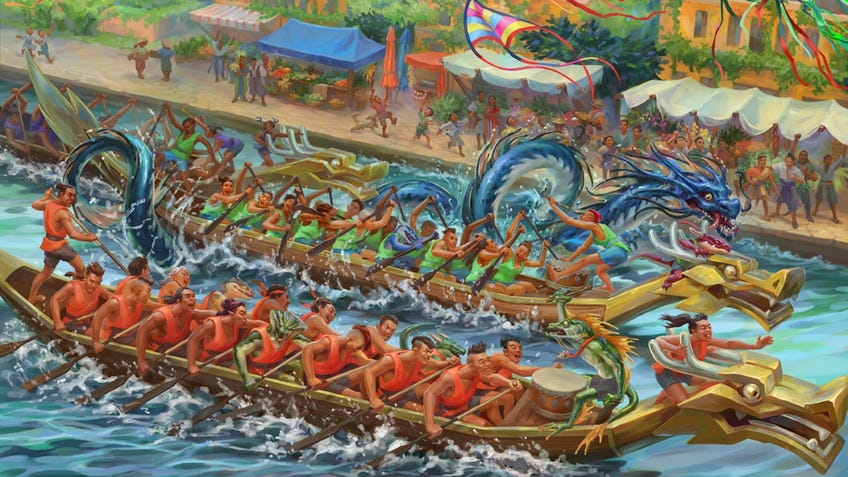From D&D and Pathfinder to Critical Role, cultural consultants have never been more important in the tabletop RPG industry
“It's always been important to engage with this kind of work. It just wasn't done before.”
Late last year Wizards of the Coast drew criticism for the many racist tropes central to Dungeons & Dragons’ hadozee player character race, spawning questions about whether or not the Spelljammer line of 5E sourcebooks they were featured in had undergone any sensitivity reading or cultural consulting processes. How had no-one at any stage of publishing raised an eyebrow at the notion of “deck apes” or where that term had originated?
Wizards later issued an apology, saying not every aspect of the hadozee lore had been “properly vetted” before going to press, and there would be an internal review of what went wrong.
While media coverage of such controversies are important for putting pressure on publishers and provoking corrections to harmful material, they only offer a brief opportunity to highlight the role of sensitivity readers within tabletop RPGs and gaming broadly. This reporting often does little to contextualise the importance of these roles and their work, while simultaneously sensationalising and atomising a problem that every writer, developer and publisher in the industry has to navigate.

“No-one even thinks about these communities, much less imagines that there's creative possibilities in the way we live our lives, or the futures we could have, or the fantasy versions of our existences,” explains Jennifer Kretchmer, a writer, actual play performer, disability consultant and advocate. “People just create these worlds where we don't exist, and that's because they don't think about us existing in the real world, or don't think we should exist in the real world.” Cultural consultants like Kretchmer are using their work to resist the way mainstream tabletop RPG games construct, envision or erase people who are neither straight, white or able-bodied.
Kretchmer says her earliest experiences playing pen-and-paper RPGs were characterised by being one of the few non-men participating in the hobby, but as her mobility deteriorated over the years as a result of Ehlers-Danlos Syndrome, she also began to see how the gaming world rarely considers people with any kind of disability. She was drawn to cultural consulting work initially through her development of resources such as the Accessibility in Gaming Resource Guide, and has since written for and consulted with the likes of Wizards of the Coast, Pathfinder publisher Paizo and Star Trek, Dune and Conan RPG maker Modiphius.
People just create these worlds where we don't exist, and that's because they don't think about us existing in the real world, or don't think we should exist in the real world.
Titles like “sensitivity reader” and “cultural consultant” are often used interchangeably, but mean very different things to Kretchmer. James Mendez Hodes agrees. Mendez has written for Avatar Legends studio Magpie Games and RPG accessories specialist Hit Point Press, as well as consulting on Magic: The Gathering, John Harper and Sean Nittner’s Agon, and, more recently, Cephalofair Games’ Frosthaven. For him, a sensitivity reader is someone brought into the development process near the very end, at which point most of the vital decisions around lore, mechanics and art have already been solidified, meaning there’s little change that can be made. “It feels like that meme of the tank leaking and the dude slaps the bandaid over it. Yes, it's technically better than not having the bandaid there at all,” he quips. “I don't think sensitivity readers and cultural consultants are different people or different job titles, they're terms for the same thing which suggest different client-side approaches to process.”
Both Mendez and Kretchmer say that “cultural consultant” is the more operative term, and is a role that should be involved at the earliest possible point in game development so that they can have the greatest impact. “If you want to construct worlds that in many ways are better than our own, or where you are choosing to actively remove certain types of biases as much as possible, you've gotta start from the beginning because that framework affects how you approach the rest of the world,” Kretchmer explains.
Cultural consultants are not new, but their presence on projects across the industry is growing as the tensions between established intellectual property, a strong independent publishing market shifting power dynamics and the desire for fans, creatives and players alike to see themselves in the material they play also increases. Even as consultants are being involved in the development process much sooner, the actual work can still vary project to project. Most commonly, these consultants are brought on to review everything from writing and documents to mechanics and art.
“It's always been important to engage with this kind of work. It just wasn't done before,” explains Basheer Ghouse. As a writer, designer and consultant, Ghouse has worked with Kobold Press, Paizo, Wizards of the Coast and Critical Role. “When you are dealing with not just fraught subjects, but subjects you're not familiar with that are relevant to people's lives, there's always the possibility of making a mistake in a way that furthers prejudices or hurts people. Older works did this all the time and nobody noticed [at the time] because the audience wasn't that diverse.”

Like Kretchmer, Ghouse and Mendez got involved in consultancy work by being the people in the room who challenged norms around how legacy games like Dungeons & Dragons navigate issues of race. Mendez wrote a thoughtful history of the racist origins of orcs on his blog, and Ghouse wrote about the colonialist underpinnings of D&D for his.
“One of the topics I talk about the most in cultural consulting is the hate-washing process,” Mendez says. “Hate-washing is the process where a signifier or an expression emerges from an explicitly systemically oppressive context. It's originally created as a racist or sexist or homophobic thing, but then it gets enshrined in a genre as a genre trope.” These tropes are at risk of being reproduced uncritically in any game that draws on genre devices unless part of the development process involves identifying and cutting them out.
Educating teams on what these tropes and devices look like is a fundamental part of what cultural consultants do. Kretchmer says that often the first step for her is to conduct a sort of “Disability 101” information session for the team that has contracted her, which helps contextualise the importance of her work and clear up base assumptions.
Kretchmer’s focus on accessibility extends beyond most other kinds of consultancy in that she also considers how a product will be used by its players and GMs, and whether that use lives up to established accessibility standards, like with the D&D For All Kit that came out in 2022. The kit revamped the three-book Dungeons & Dragons 5E Starter Set by incorporating elements of universal design, such as Braille; various flaps, loops and magnetic closures to aid with manual dexterity; fidgets for neurodivergent folks; and even QR codes so the text could be pulled up on screen readers. “It was designed to be beautiful, designed to serve multiple different communities, but also to be something that non-disabled players would want to engage with,” she beams about the project.
Yet despite all of the net positives this work produces, an attention economy built on controversy frames cultural consultants as a force of invasive, reactionary, politically correct, box-checking, sticks-in-the-mud that make products “safe” or “tame”. Throughout our conversations, Kretchmer, Mendez and Ghouse each dispel that notion by highlighting how additive and productive the process actually is.
“I'm not just telling people what not to do. That's the smallest and least interesting part of the job,” says Mendez. “I'm helping people with cultural design, I'm helping people with their writing, I'm helping people come up with beautiful and validating things which they can include in their work, which make them feel better about it, and which makes the people playing their games, reading their books, playing their video games, not just not feel offended but feel excited at the portrayal of someone who's kind of like them.”

These consultants have seen how their work can influence a game for the better, but that’s only in the cases where a publisher listens to what they have to say. “Sometimes you are being used as a shield and [the client is] not going to listen to you. That's exhausting,” Kretchmer notes about the risk of being tokenised. “This can be a very exhausting process regardless, because frequently you're having to defend your own existence to people.”
After the final product failed to live up to his own standards, Mendez distanced himself from his role as a developer from Chaosium’s 7th Sea: Khitai Asia-Pacific setting rulebook. Originally the project, led by developer John Wick, was created and staffed by a majority Asian-American team, but Wick ran out of funding before it was completed.
I'm helping people come up with beautiful and validating things which they can include in their work, which make them feel better about it and which makes the people playing their games not just not feel offended but feel excited at the portrayal of someone who's kind of like them.
When Chaosium bought the rights to the 7th Sea setting and brought Wick along to finish the project, none of the Asian developers original to it were brought back, and were reportedly told by Chaosium that there was no budget for a final cultural consulting pass on the material either, though they could review the final draft and make suggestions.
“A lot of us had to distance ourselves emotionally from the project because it was no longer the thing that we had promised to ourselves or to our communities either creatively or work, process and personnel wise,” Mendez says.
“You don't actually have much power in this situation,” Ghouse adds. “The power you have is the respect they give you when you make a suggestion.”
In response to the claims, Chaosium told Dicebreaker that for “7th Sea: Khitai, the manuscript was complete prior to Chaosium’s acquisition of the 7th Sea line from John Wick Presents”, and that writers from that original team were able to review the final text before publication. “For 7th Sea books created under Chaosium, we have recruited writers and artists from relevant cultural backgrounds,” Chaosium vice president Michael O'Brien said in an email. “For example, the creative team for the upcoming Land of 1000 Nations includes Native American writers and artists.”
In July of 2020, game writer and designer Orion D. Black announced their departure from Wizards of the Coast on Twitter, citing the D&D publisher’s lack of desire to commit to substantive structural anti-racist change as a primary motivator. As a result, Black wrote that they felt silenced and ignored, while having some of their creative ideas used and not properly credited. Wizards later shared an apology, saying Black’s “statement is being taken seriously and is an opportunity for us to improve the experiences of all those who contribute to our company and community”.
It is not lost on Kretchmer that consultants and writers are brought onto projects on a contractual basis, a level of precarity that allows major publishers to benefit from their ideas and identities, without having to invest in recruiting or hiring diverse creatives on a full-time basis. These jobs offer little in the way of crossover between consultants, or even mentorship opportunities.
One hundred percent we need diverse people in decision-making positions because that's where you're going to get people right off the bat saying, ‘No, this story is a problem.'
Kretchmer, who is also a television producer, says that this kind of exploitation is rampant in that industry as well, where there’s a significant gap in terms of both compensation and opportunity between being credited as a consultant versus as a writer: “One hundred percent we need diverse people in decision-making positions because that's where you're going to get people right off the bat saying, ‘No, this story is a problem,’ ‘No, we're not doing things with this idea or trope,’ or ‘We're going to try this whole brand new thing.’
“It's also who has the hiring power to say, ‘We're gonna hire more equitably,’ or ‘We're going to pay more equitably,’ or ‘We're going to change the structure of our workday to make it more flexible to accommodate different schedules or working from home.’”

Each of the consultants we spoke to said some of their best experiences in the industry have been on diverse teams that also included cultural consulting work, whether that’s Kretchmer’s with the all-disabled cast and DM for D&D Beyond’s Galesong: Dragon’s Convergence actual play; Ghouse’s upcoming work for Paizo’s Lost Omens: Tian Xia and his indie project recently successfully funded on Kickstarter, the dieselpunk alternate fantasy of 1920s India, Guns Blazing; or Mendez’ work on Wet Ink Games’ Jiāngshī: Blood in the Banquet Hall.
Mendez recalls being approached by Jiāngshī creators Banana Chan and Sen-Foong Lim to be involved with the project, and feeling some disbelief that he was being asked to be a cultural consultant, given that the roleplaying game is about a Chinese family running a restaurant in North America during the exclusion era. “I was like ‘Y'all know I'm Filipino, right?’ And they're like, ‘Yes, we know, we just really trust your craft as a cultural consultant.’ So combining their firsthand cultural knowledge with my consulting skills, that was an awesome experience,” he recalls.
“From a cultural perspective, it was really great, the same way that being a writer and working with an editor is great. That was one of the best experiences I've had as a cultural consultant.”
 Let’s play Jiangshi: Blood in the Banquet Hall -TTRPG playthrough with Banana Chan and Sen-Foong Lim
Let’s play Jiangshi: Blood in the Banquet Hall -TTRPG playthrough with Banana Chan and Sen-Foong Lim
Both Mendez and Ghouse agree with Kretchmer that taken in isolation, cultural consulting work can be just a bandaid for publishers unless they also make strides toward putting more diverse people in positions of power.
“The real solution on some level is to put people in the project management chair, as writing staff or in art director positions on these projects. It is to give opportunities and cash to the people who should be in charge here,” Ghouse says.
He adds that making such changes won’t necessarily reduce the need for cultural consultants, either: “I'm a desi Muslim dude; when I am writing stuff about contentious periods of Indian history or about India in general, I try to get someone else to review it because there's enough baggage there that I want to make sure I'm not unthinkingly falling on a trope.
“Even once you're in a better place [diversity-wise], you still want a cultural consultant on the project.”


